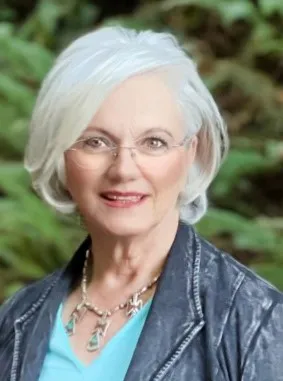Sherida Phibbs, UC Master Food Preserver San Joaquin County Volunteer

Image credit: Sherida Phibbs, 2025.
"Being a Master Food Preserver isn’t just about jars and recipes — it's about resilience, community, and preserving traditions that feed both body and spirit." — Sherida Phibbs
I didn’t grow up living on a country property, but I grew up watching my mother preserve fruits and vegetables. Eventually, I began helping her, and that early experience planted the seeds for my lifelong love of home food preservation. Years later, when my husband and I were living on a country property in Lodi — with 15 fruit trees and an expansive vegetable garden — those skills came in handy. Canning season became a busy and joyful time, filled with the satisfaction of harvesting and preserving the fruits of our labor. When I retired in 2017, I finally had time to pursue the UCCE Master Gardener training, something I had wanted to do for a long time. After completing that program, it felt only natural to take the next step and enroll in the Master Food Preserver training. The two programs truly complement each other, and I found it exciting to learn the science behind the preservation methods I had already been using at home.
Our Lodi property had beautiful loamy soil that produced generous harvests: peaches, cherries, plums, pluots, pears, apricots, blueberries, asparagus, corn, onions, zucchini, beets, green beans, peas, carrots, tomatoes... and probably a few more I’ve forgotten! There was always something ready to pick and preserve. Eventually, we decided to make a lifestyle change. We sold our home and moved to Humboldt County, a place where we had often vacationed and dreamed of living. Our new residence had a much smaller yard, which meant fewer gardening chores, but also limited the produce I had available to preserve. What I didn’t expect was how different the mindset was in this isolated, rural area. In San Joaquin County, home food preservation felt like a lost art we were trying to reintroduce to our community. In Humboldt, it’s a way of life. Growing and preserving food is common, and home-canned fish is a staple. People take self-reliance seriously, because when earthquakes or extreme weather hits, roads can close, power can go out, and you may be on your own for days or weeks.In fact, the day after we moved in, a powerful storm knocked out our electricity for almost a week. I was incredibly grateful for the home-canned food I had brought with me. That experience motivated me to start pressure canning soups and stews, so we’d always have meals ready for emergencies. I also began to appreciate the importance of emergency preparedness — go bags, nonperishable foods, and shelf-stable meals were no longer just nice to have, they were essential.
After three years in Humboldt, we returned to the Central Valley. I came back with a new sense of mission. I had seen what true food self-sufficiency looked like, and I wanted to bring that knowledge and spirit back to San Joaquin County. I’m more determined than ever to recruit and train new Master Food Preservers, so we can reach more families with safe, science-based food preservation techniques. It’s easy to find bad advice online these days; social media is filled with unsafe preservation methods that get passed around without a second thought. That’s why our work as Master Food Preservers matters. We’re here to educate, empower, and help people preserve food safely, reduce waste, and stretch their grocery dollars, skills that are more valuable than ever in today’s world.
Being a Master Food Preserver isn’t just about jars and recipes. It’s about building resilience, sharing knowledge, and preserving traditions that feed both body and spirit. I’m grateful to be part of that mission.
